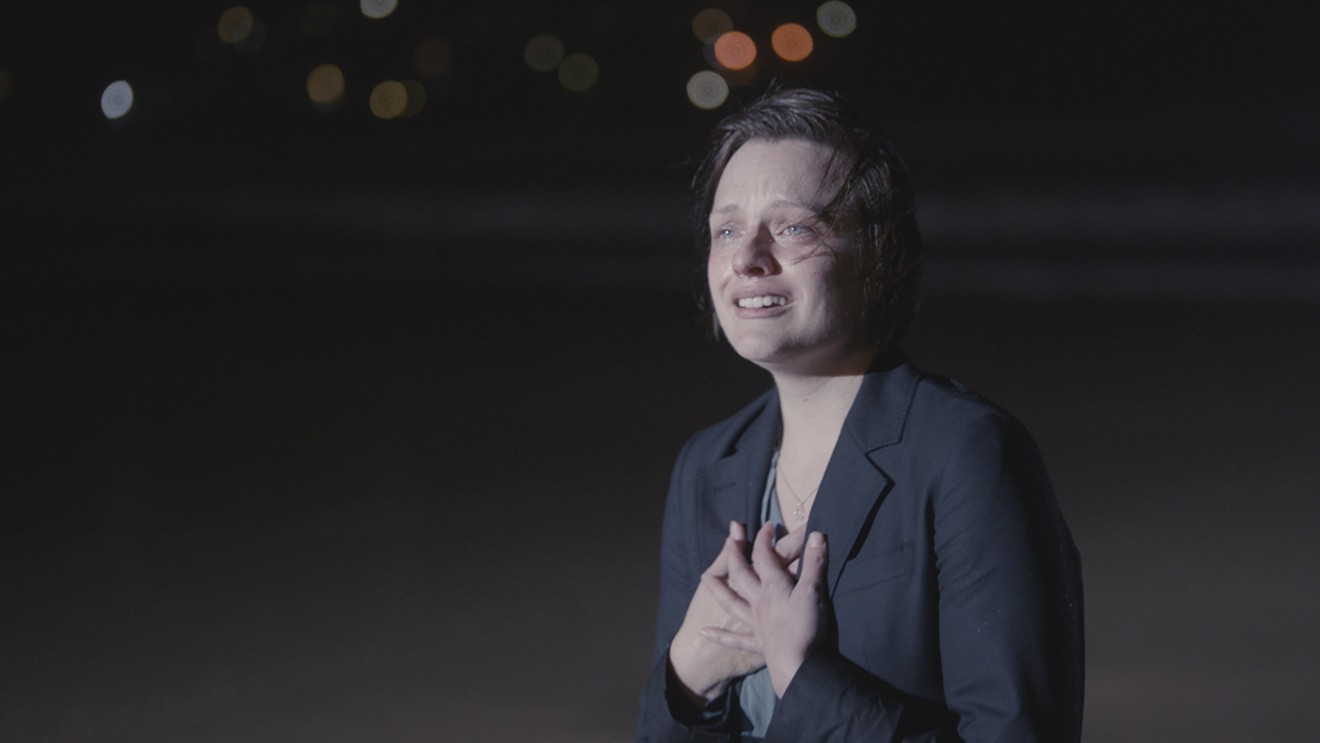Top of the Lake: China Girl airs on SundanceTV
Jane Campion’s initial plan for Top of the Lake, her SundanceTV drama about sexual violence in a rural New Zealand town, was for the story of haunted detective Robin Griffin (Elisabeth Moss) to come to a full stop at the end of the first and only season. As the survivor of a teenage gang rape, Robin tackled the painful reverberations of her trauma and battled her fellow officers’ shrugging indifference while investigating a 13-year-old’s pregnancy — and later, the missing girl’s whereabouts. Gorgeous and lonely making Kiwi mountainscapes, plus a thoroughly original character in Holly Hunter’s guru-crone (who teasingly resembled Campion herself), helped smooth out the considerable kinks in that indelible 2013 season.
Nearly half a decade after, Top of the Lake returns with a subtitle, China Girl, and a question, at least in this critic’s mind, of whether the director of Bright Star and the Palme d’Or-winning The Piano should have stuck with her original intent. With the faults of the first season magnified, China Girl is probably more of an interesting failure than an outright mess — but not by much. Moss will probably square off against herself (in The Handmaid’s Tale) in the 2017 best-of-year rankings. But the Sydney-based sequel’s fervid evocation of invisible, destabilizing pain is diminished by a thematic incoherence and a preposterous mystery with more loose ends than a mop.
What are the chances that, five years after uncovering a pedophile ring involving a member of her own family, a detective would stumble on a human-trafficking ring (in which paid sex might be the least grimy thing on offer) involving a different family member? Campion and her co-writer Gerard Lee ask viewers to overlook several such coincidences to get the new season rolling. A teal plastic suitcase with long Asian hair spilling out washes up on shore. We know that the pregnant body inside — dubbed “China Girl” by the medical examiner — comes from a brothel. It takes Robin and her puppy-dog-eager protege Miranda (Game of Thrones’ Gwendoline Christie) — expecting a child herself — some time to figure out that the woman stuffed inside the suitcase had been a pregnancy surrogate. (In contrast to most of the U.S., prostitution is legal and surrogacy is illegal in Sydney.)
On her press tour for this season, Campion has regaled interviewers with a tale of how she “snuck” into an Asian-Australian bordello to get a better sense of the sex-work trade there. But the China Girl case often seems like an afterthought. Campion’s concern comes across — we’re certainly given lots of background on how girls and women from Southeast Asia enter Australia on student visas — but the filmmaker finds little new to say about female exploitation or agency. None of the Thai prostitutes who work at the brothel, though seen in virtually all six episodes, get developed enough to even be sorted into archetypes. Campion’s perspective here is something like Sally Struthers’ in all those Save the Children infomercials: sympathetic but othering.
China Girl’s real focus is on (white) motherhood. Robin connects for the first time with 17-year-old Mary (Alice Englert, Campion’s daughter), the child she gave up for adoption following her sexual assault. Harebrained and silver-tongued, Mary aims to marry her 42-year-old boyfriend Alexander (David Dencik), who tells his fiancee’s distraught parents (Ewen Leslie and a wholly underutilized Nicole Kidman) that the thesis of his aborted dissertation was that “the destiny of man is to enslave women.” (You might spend much of China Girl wondering, as I did, if lovesick-teen Mary is too dumb or just dumb enough.) The pathologically narcissistic Alexander, who lives above the same brothel and whose (ludicrous) connection to the sex workers is ever-so-slowly revealed, is joined in toxic masculinity by a coterie of college-age “Hooker Raters” who get together at a cafe to write Yelp reviews for sex workers.
The first season’s dreamy yet biting feminism clicked because it took place in our world and in the one we hope for; the remoteness of Queenstown, New Zealand, somehow made that narrative feel deeply relatable. The juxtaposition between Mary’s exploitation and the Asian sex workers’ plight — and China Girl’s clear interest in the former above the latter — renders this second season a panicked defense of white innocence rather than the demonstration of intersectional empathy it was probably meant to be. The new season also stumbles when its creators attempt grand statements about the universal urges of motherhood, while glaringly underdeveloping the relationship between Mary and her recently queer mother.
Somewhere in China Girl is an observation that it’s not just white men who exploit Asian female bodies, but white women, too, through surrogacy. There’s also something resembling a satire of the white-savior complex. But the forcefulness of those condemnations get undermined by too many other elements. Fittingly, China Girl’s smartest commentary may be about how Mary’s confused feminism and well-meaning instincts get twisted into shapes she had never intended or imagined.
[
{
"name": "Air - MediumRectangle - Inline Content - Mobile Display Size",
"component": "18855504",
"insertPoint": "2",
"requiredCountToDisplay": "2"
},{
"name": "Editor Picks",
"component": "17105533",
"insertPoint": "4",
"requiredCountToDisplay": "1"
},{
"name": "Inline Links",
"component": "18349797",
"insertPoint": "8th",
"startingPoint": 8,
"requiredCountToDisplay": "7",
"maxInsertions": 25
},{
"name": "Air - MediumRectangle - Combo - Inline Content",
"component": "17105532",
"insertPoint": "8th",
"startingPoint": 8,
"requiredCountToDisplay": "7",
"maxInsertions": 25
},{
"name": "Inline Links",
"component": "18349797",
"insertPoint": "8th",
"startingPoint": 12,
"requiredCountToDisplay": "11",
"maxInsertions": 25
},{
"name": "Air - Leaderboard Tower - Combo - Inline Content",
"component": "17105535",
"insertPoint": "8th",
"startingPoint": 12,
"requiredCountToDisplay": "11",
"maxInsertions": 25
}
]











